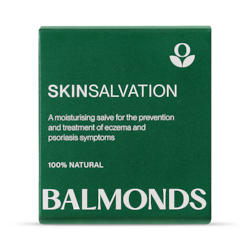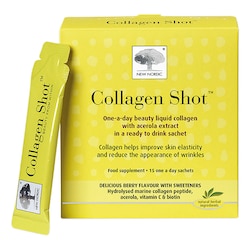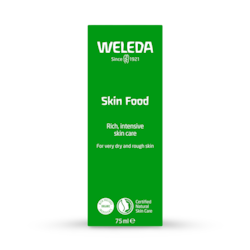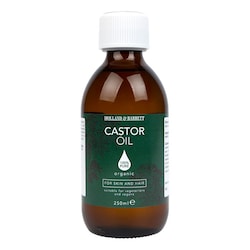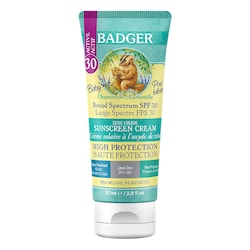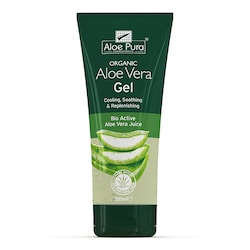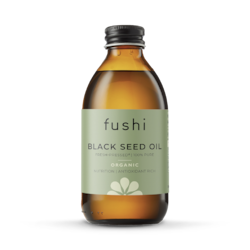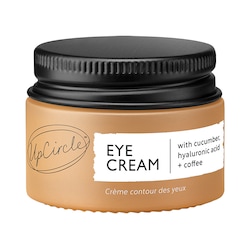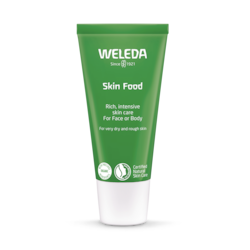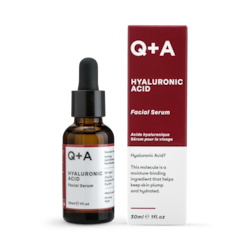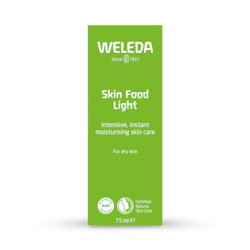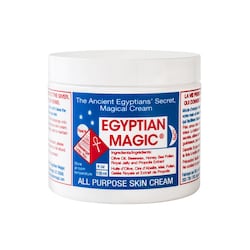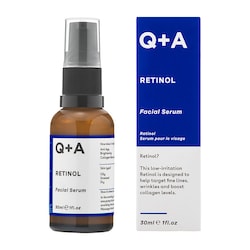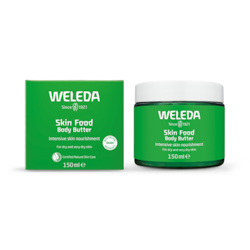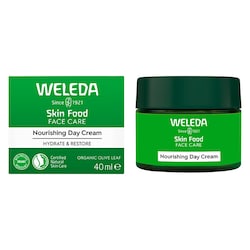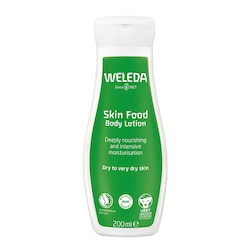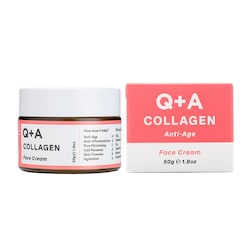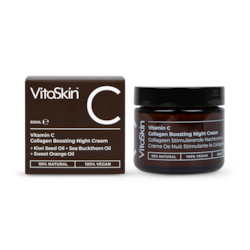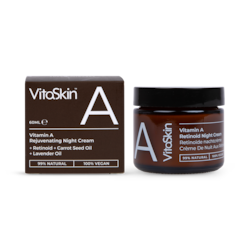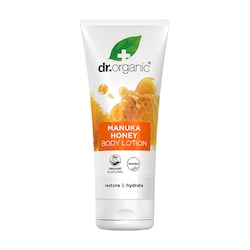15% off £20
Code:TREAT
11 benefits of Kalahari melon seed oil
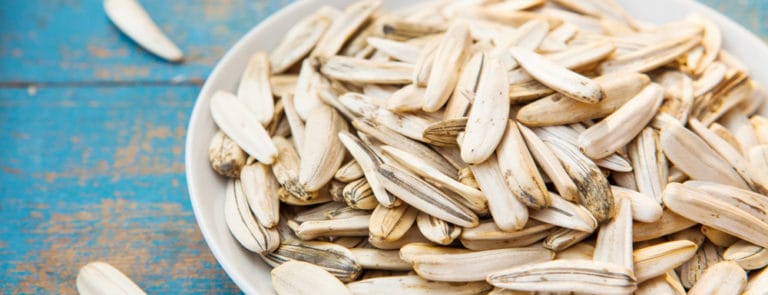
It’s the newest wonder oil, but what exactly is Kalahari melon seed oil? You’re about to find out, from where it all started, 11 benefits, and how to use it.
Summary
1What is Kalahari melon seed oil?
The origins of this fascinating natural oil can be traced all the way back to the plains of Southern Africa. Growing mostly in Namibia and Botswana...
2Can you eat melon seeds?
Yes, and they’re also loaded with nutrients. Melon seeds are rich in magnesium, a mineral that plays a crucial role in converting food to energy...
3How to use melon seed oil
Wondering how you can use melon seed oil in your daily routine? Here's how:
Joining the ranks of argan, coconut and cacay oil – there’s a new wonder oil in town!
Once the beauty industry’s best kept all-natural secret, people are finally clocking on to the incredible properties of Kalahari Melon Seed Oil.
This trendy new melon seed oil is linked to a number of need-to-know benefits, from glowing skin and healthy hair to better heart health and memory.
So, it’s time to ask the question for yourself…
What is Kalahari melon seed oil, and what can it do for you?
What is Kalahari melon seed oil?
The origins of this fascinating natural oil can be traced all the way back to the plains of Southern Africa.
Growing mostly in Namibia and Botswana, deep in the desert from which the oil gets its name, is the wild watermelon.
Also known by Latin title ‘Citrullus Vulgaris’, they are far from the refreshing watermelons we all know.
The Kalahari melon has yellow or pale green flesh and a bitter taste – but thankfully we don’t need to eat it to get something great from this wonder fruit. The secret’s in its seeds.
Holland & Barrett nutritionist Emily Rollason says: “Kalahari Melon Seed Oil is as rich in nourishing omega-6 fatty acids as Evening Primrose Oil, while its antioxidants help to keep the skin glowing, youthful and strong, making it the beauty must-have this season.
Omega-6 fatty acids stimulate skin cell growth, helping to regenerate and restructure skin cells to keep your skin feeling supple and firm. It also keeps skin looking blemish-free.”
Handpicked content: 10 best aromatherapy oils for soothing common skin conditions
What are melon seeds?
When the watermelons are harvested, they’re split open, and their seeds collected.
The seeds are dried out in the African sun until there’s almost no moisture left in them – only a rich, golden-coloured watermelon seed oil.
The seeds are pressed to extract the oil, which is collected, bottled and ready to use!

Can you eat melon seeds?
Yes, and they’re also loaded with nutrients. Melon seeds are rich in magnesium, a mineral that plays a crucial role in converting food to energy, nervous system regulation and effective protein synthesis.1
Add to that being a great source of potassium, folate, zinc, protein and iron, and you have yourself a healthy snack when you’re feeling peckish!
Summary
- The Kalahari melon grows mostly in Namibia and Botswana and is considered a wild watermelon
- Kalahari melon seed oil is rich in omega-6 fatty acids and antioxidants
- Kalahari melon seed oil is created by drying out the seeds in the African sun and pressing them to extract it
- You can eat the melon seeds as they’re rich in magnesium, potassium, folate, zinc, protein and iron, making them a healthy snack option
10 Kalahari melon seed benefits
Kalahari melon seed oil is a great choice for a natural facial cleanse.
The oil is super-rich in linolenic acid, which makes up between 50% and 70% of its entire content.
Used on the face, it gets to work unclogging pores and removing excess sebum from the surface of your skin.
It makes skin look firmer and the appearance of wrinkles are often reduced.
Packed full of antioxidants, it has a hydrating and tightening effect when applied. Who wouldn’t want that?
The oil can be effective at helping to repair skin damage and scars.
Omega-6 and omega-9 fatty acids aren’t created naturally within the body, so they must be found somewhere else for their benefit to be realised.
And yes, you guessed it – Kalahari melon seed oil is rich in both! These stimulate skin cell growth, prompting regeneration and giving skin a plumper, fresher appearance.
It works wonders as a conditioner for the hair and scalp.
While treatment hair oils have boomed in popularity in recent years, Kalahari melon seed oil has the edge because it is much less greasy – perhaps even the most grease-free oil option around!
Gone are the days where your skincare routine leaves behind a sticky residue.
Kalahari melon seed oil is surprisingly light and easily absorbed by the skin, unlike other popular oils on the market.
There’s also good news for parents!
Due to the gentle nature of the oil, it also works well when applied to babies, with the antioxidant and fatty acid profile being extra beneficial for the little one’s skin.
Only the best for baby, after all!
Handpicked content: 5 of the best baby oils
The intensely nourishing and lightweight Kalahari melon seed oil is suitable for all skin types.
It can unclog pores for those prone to breakouts, provide deep moisture for those with dry skin, and for people with oily skin, there’s no need to worry.
The fast-absorbing oil works well with that, too! It certainly makes your skin-care shopping trip that little bit easier, no matter what your skin type.
As a rich source of minerals and antioxidants, consuming the seeds can be just as beneficial as applying the oil to your skin.
Antioxidants are pivotal to help in the reduction of toxins, known as free radicals, protecting the tissue from damage.3
In other words, get snacking!
Melon seeds contain vitamin B-complex, which studies have shown is strongly associated with cognitive function, helping to preserve your brain health and memory.4
Add a few drops to your moisturiser for a little antioxidant boost, your shampoo to further promote hair health and shine, or apply directly to your skin for the full kick.
Anything goes, so fiddle around a bit and find what works best for you.
For more information about this, we’ve provided a handy how-to guide on ways to use Kalahari melon seed oil below.
- Skin cleansing: rich in linolenic acid, it unclogs pores and removes excess sebum
- Antioxidants: hydrates skin and may reduce wrinkles
- Anti-inflammatory properties: with a combination of vitamins A, C and E
- Assists with skin repair: omega-6 and omega-9 fatty acids stimulate skin cell growth
- Non-greasy: leaves your hair sleek, without the grease
- Feels great on the skin: light and easily absorbed
- Natural baby oil: gentle, with antioxidants and fatty acids
- Good for all skin types: fast-absorbing yet nourishing
- Better heart health: antioxidants fight free radicals and help prevent tissue damage
- Kick-start your memory: rich in vitamin B-complex, which is believed to be connected to cognitive performance
- Versatility: can be added to other skincare and hair products or used on its own
How to use melon seed oil
Wondering how you can use melon seed oil in your daily routine? Here's how!
In your moisturiser
Kalahari melon seed oil is an absolute treat for the skin. Here's how to unlock its potential.
- Add five to ten drops to your daily moisturiser (depending on the size of the container) and stir in well.
- Make up a batch of body lotion by mixing two parts shea butter with one part Kalahari melon seed oil using a hand blender.
- Then apply liberally for a deeply nourishing skin boost.

As a carrier oil
If you love your essential oils, you’ll be glad to know that Kalahari melon seed oil works fantastically as a carrier oil. It’s gentle and easily absorbed, so dilutes harsher essential oils for an aromatic blend.
- Add a tiny drop of your favourite – be it eucalyptus, geranium, lavender or sandalwood – to four or five drops of the Kalahari watermelon essential oil.
- Apply as you please.
For oil cleansing
Oil cleansing is when oil is used to remove the impurities in pores. Kalahari melon seed oil is without doubt the best one for the job.
- Apply several drops of the oil to your hands and gently massage into your face.
- Usually, the method requires wiping down with a warm wet flannel afterwards, but Kalahari melon seed oil soaks in so fast you may not need to.
As a hair conditioner
Much like popular argan and coconut oils, Kalahari melon seed oil also works wonders on the hair, and there’s a couple of ways you can go about using it.
- Apply ten or so drops to your shampoo or conditioner and mix in well.
- Alternatively, you could massage a few drops into your hair undiluted after washing and leave to soak – this will give it a rich and nourished appearance.
Is melon seed oil suitable for everyone?
Put simply, yes.
It works for all skin types, can replace commercial baby oil if your little one’s skin needs nourishment and will work wonders for your hair.
Studies have also shown it’s classified as a non-irritant, so you’re good to go even if you have sensitive skin!5
Summary
- Kalahari melon seed oil has many uses
- It can be used in your moisturiser, as a carrier oil, for oil cleansing or as a hair conditioner
- It’s believed to be suitable for everyone, even babies!
The final say
That’s the end of your crash course on everything Kalahari melon seed oil-related, from 10 benefits of using Kalahari melon seed oil to interesting ways to use it in your daily life, and even a new potential snacking option in the future – yum!
If you feel like learning more about the ingredients of this wonder oil, check out “Why take a vitamin-B complex?”, “What are essential fatty acids?” and “What are vitamins and why do we need them?”
- https://www.nhs.uk/conditions/vitamins-and-minerals/others/
- https://pubmed.ncbi.nlm.nih.gov/12230799/
- https://www.researchgate.net/publication/323663320_Watermelon_Seeds_as_Food_Nutrient_CompositionPhytochemicals_and_Antioxidant_Activity
- https://pubmed.ncbi.nlm.nih.gov/25516359/
- https://www.sciencedirect.com/science/article/pii/S0254629917306464
The advice in this article is for information only and should not replace medical care. Please check with your GP or healthcare professional before trying any supplements, treatments or remedies. Food supplements must not be used as a substitute for a varied and balanced diet and a healthy lifestyle.
Last updated: 27 August 2021


